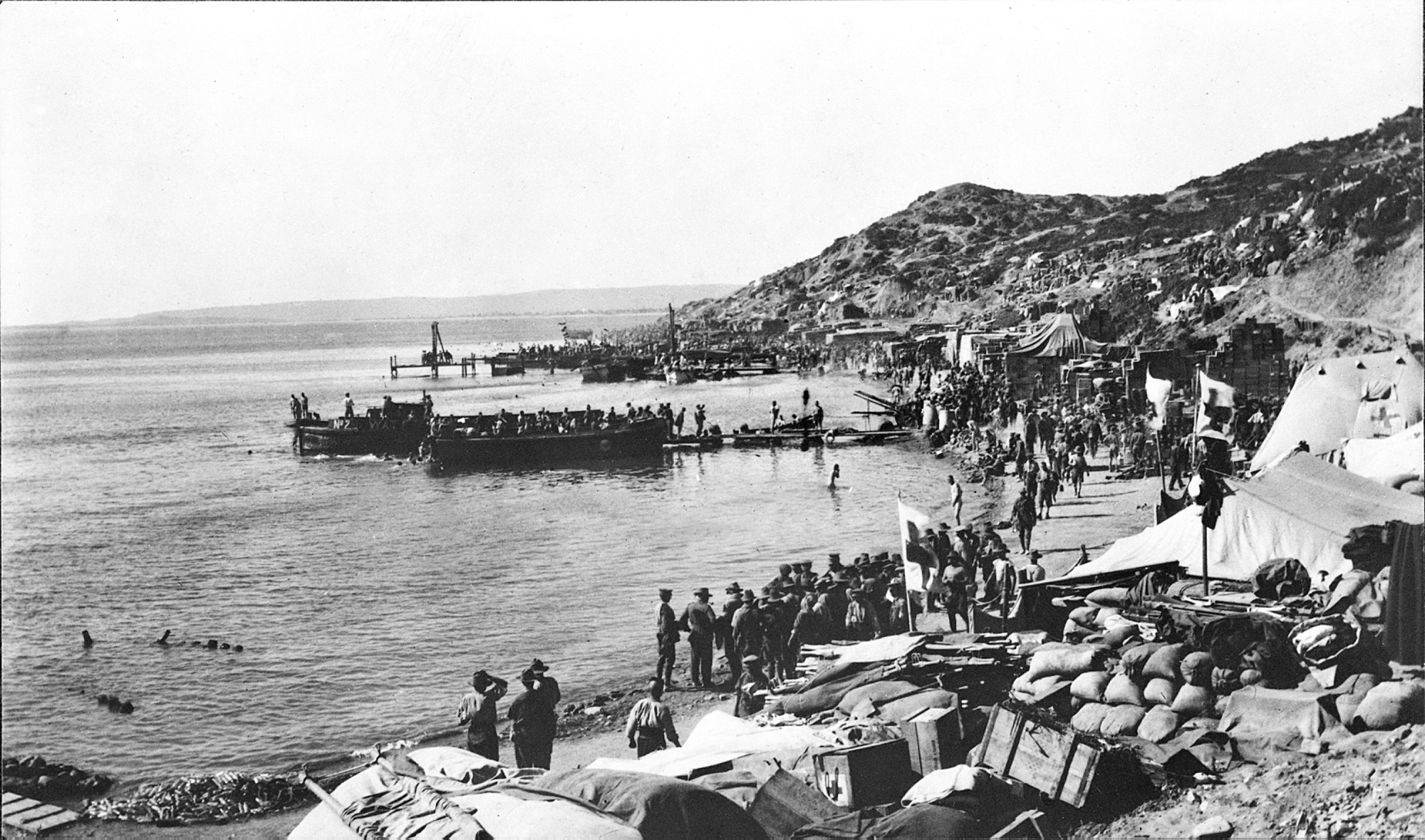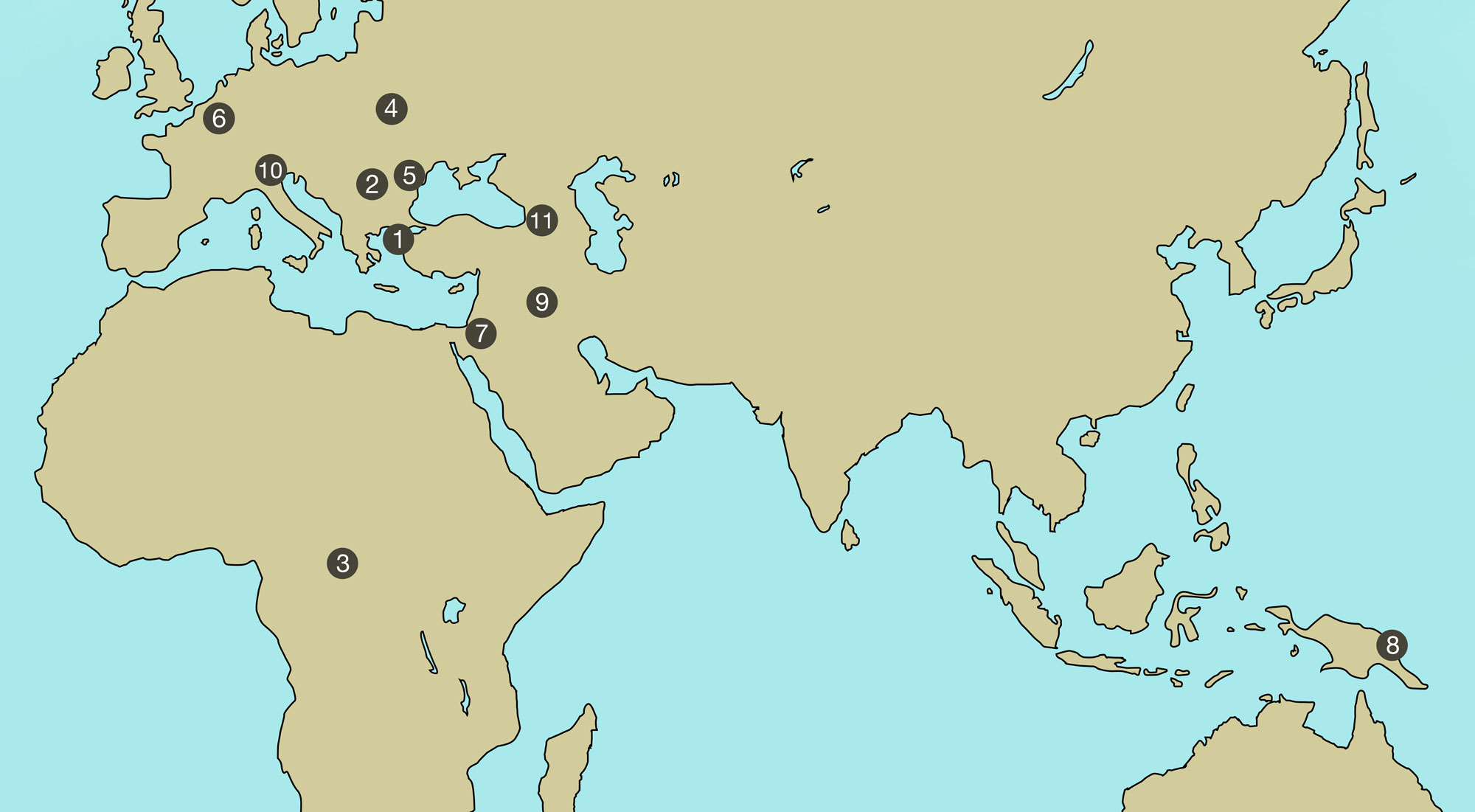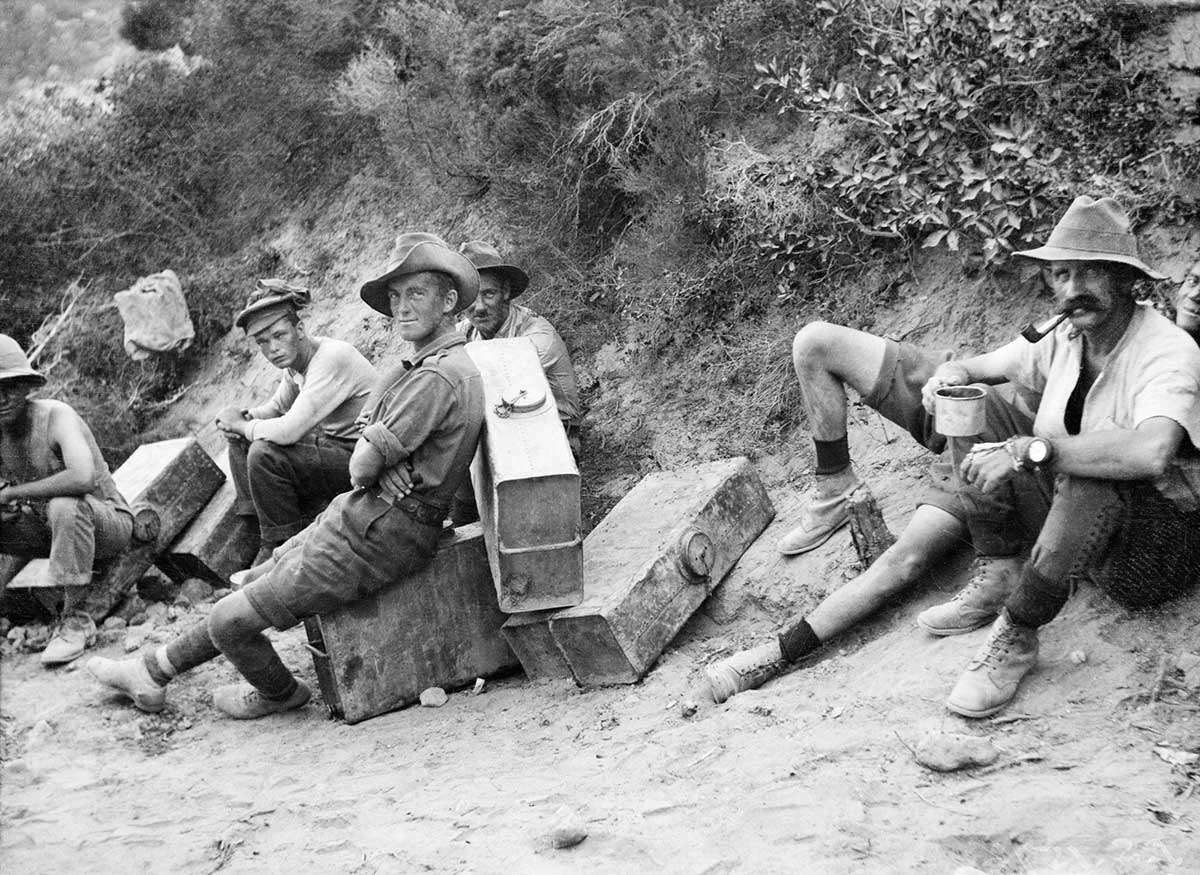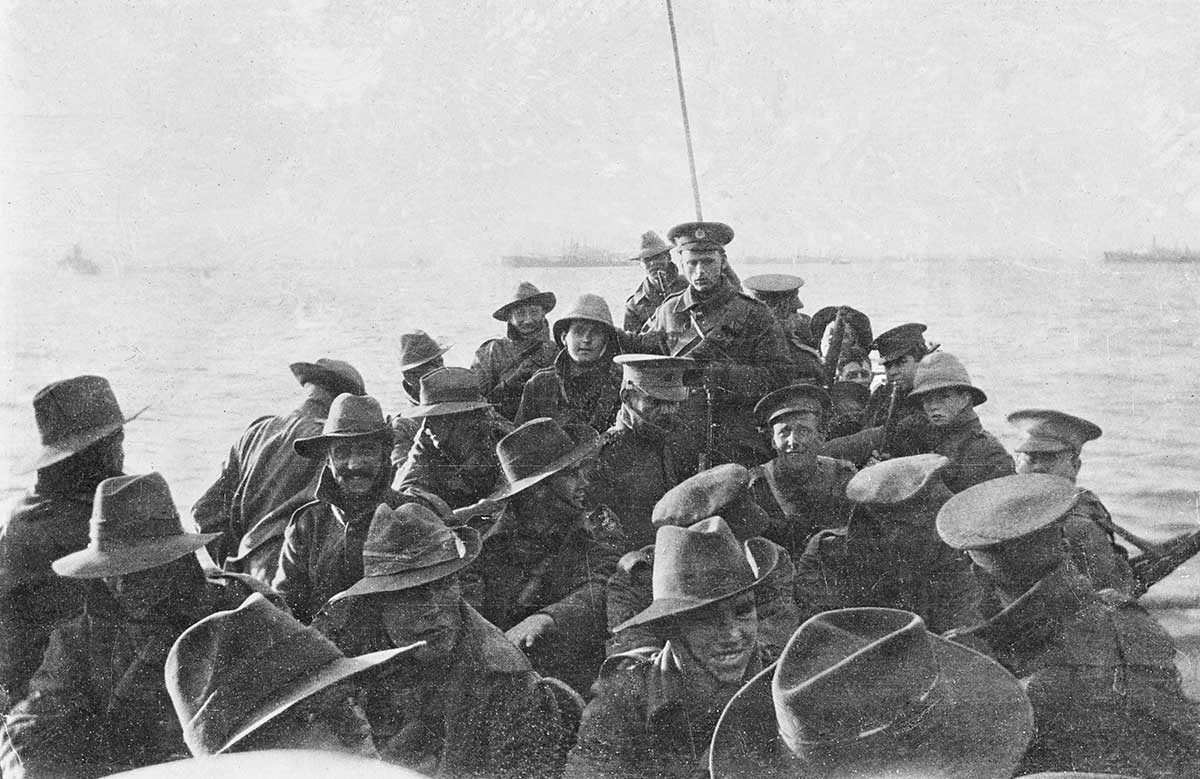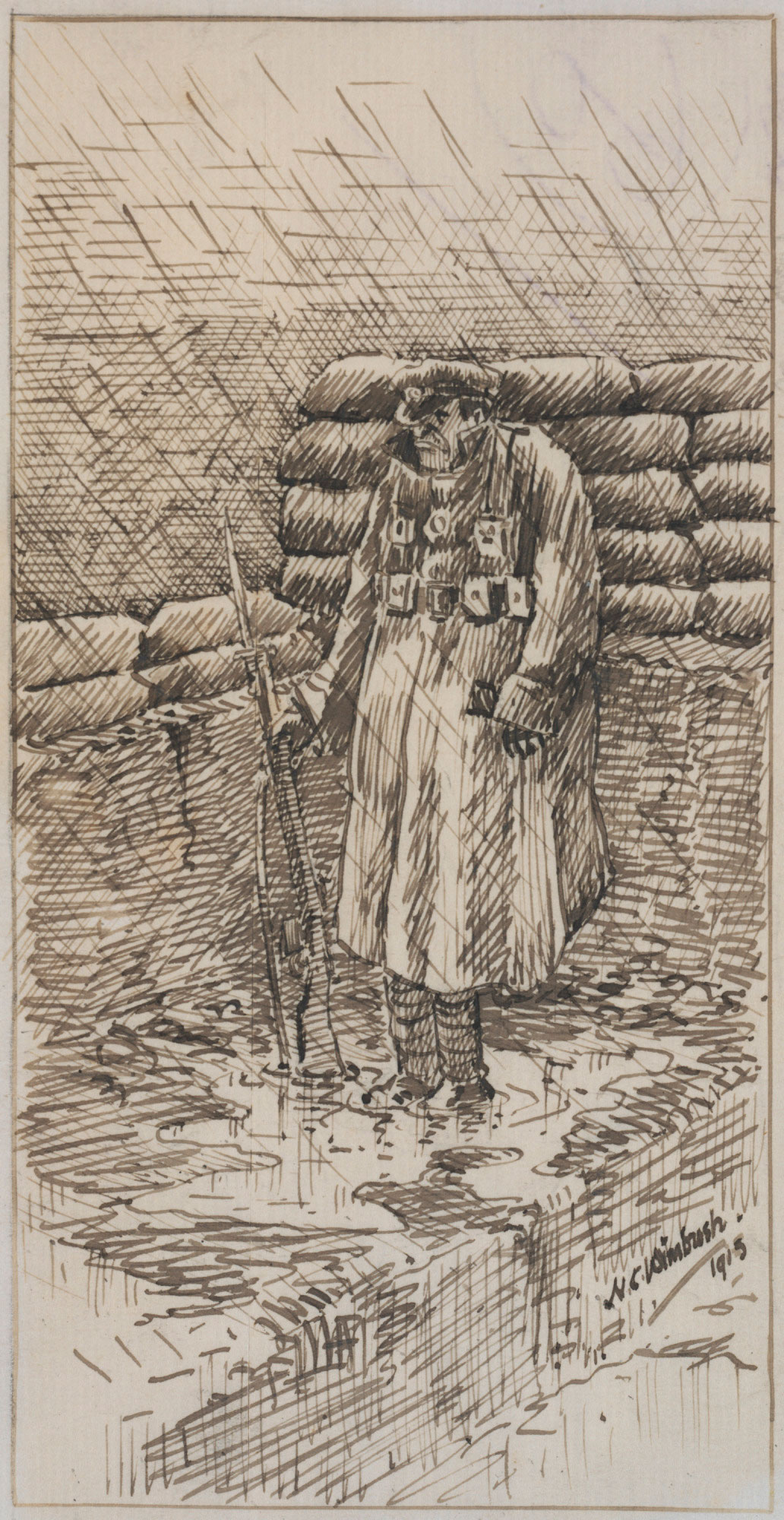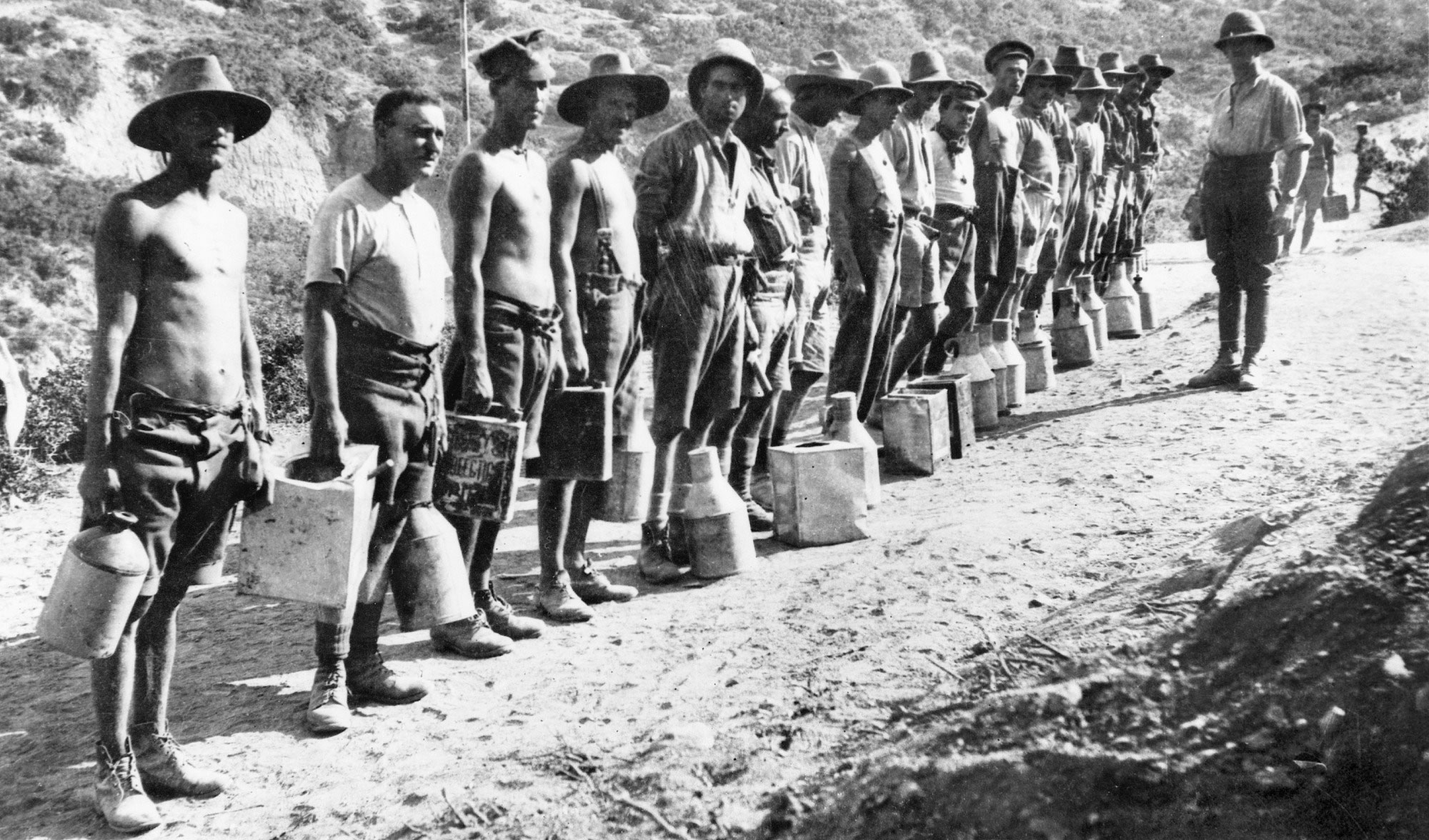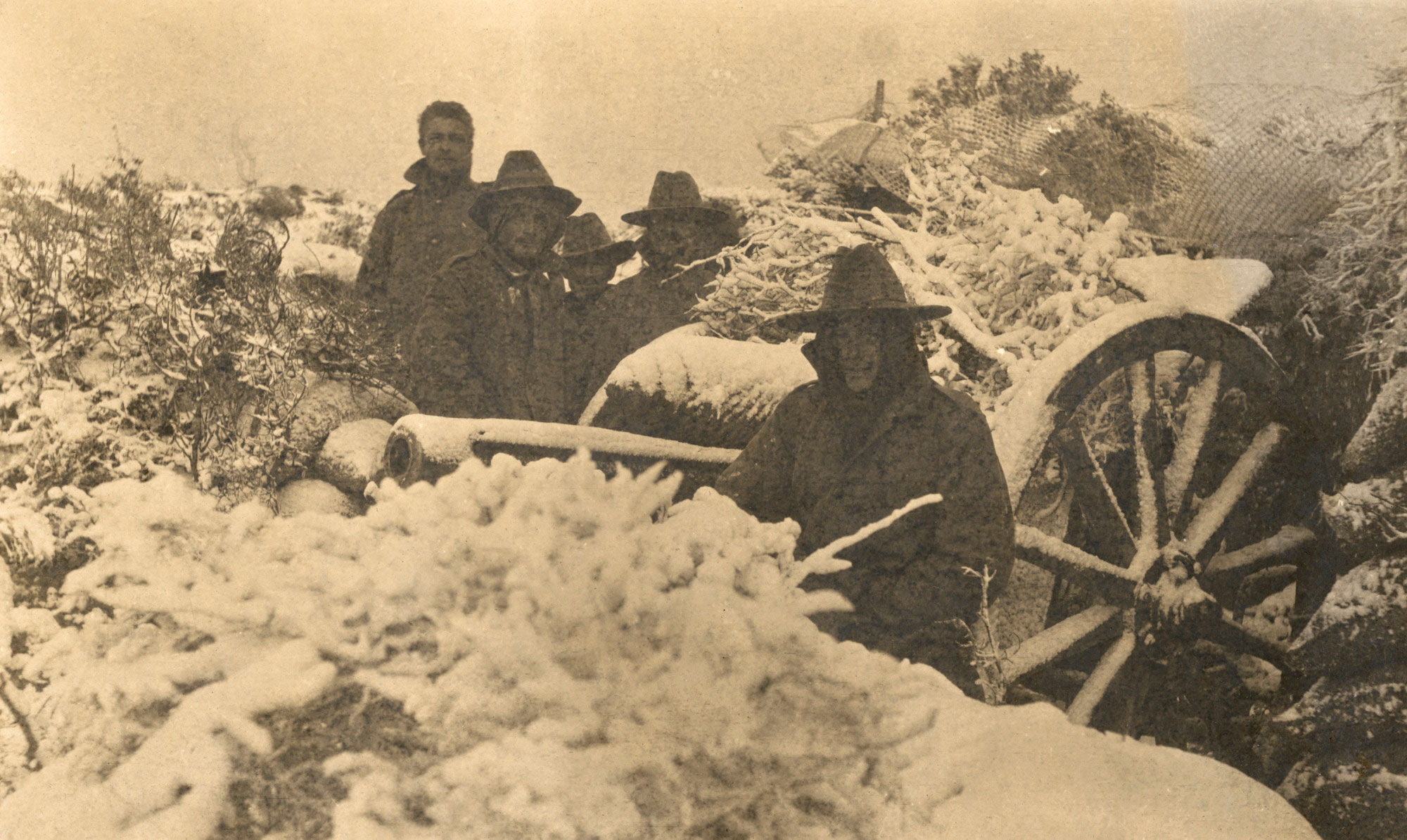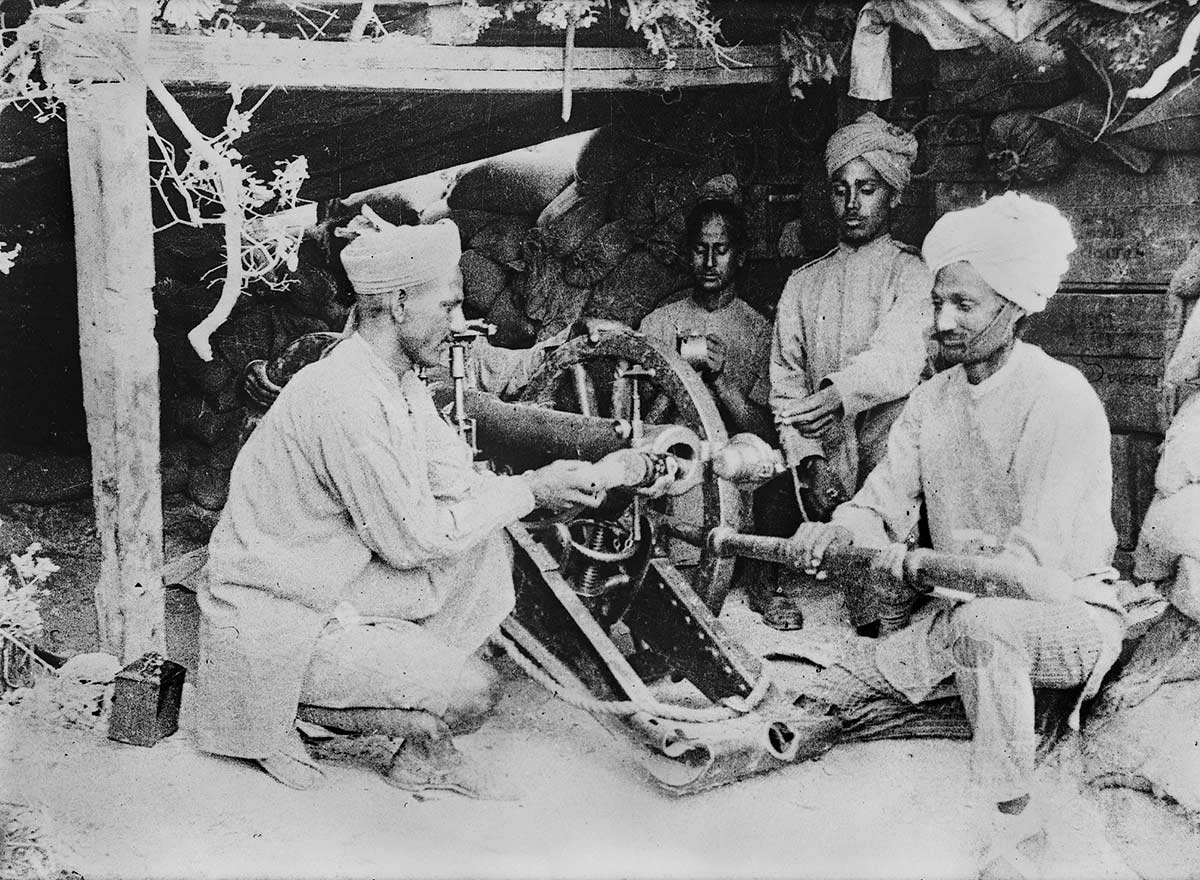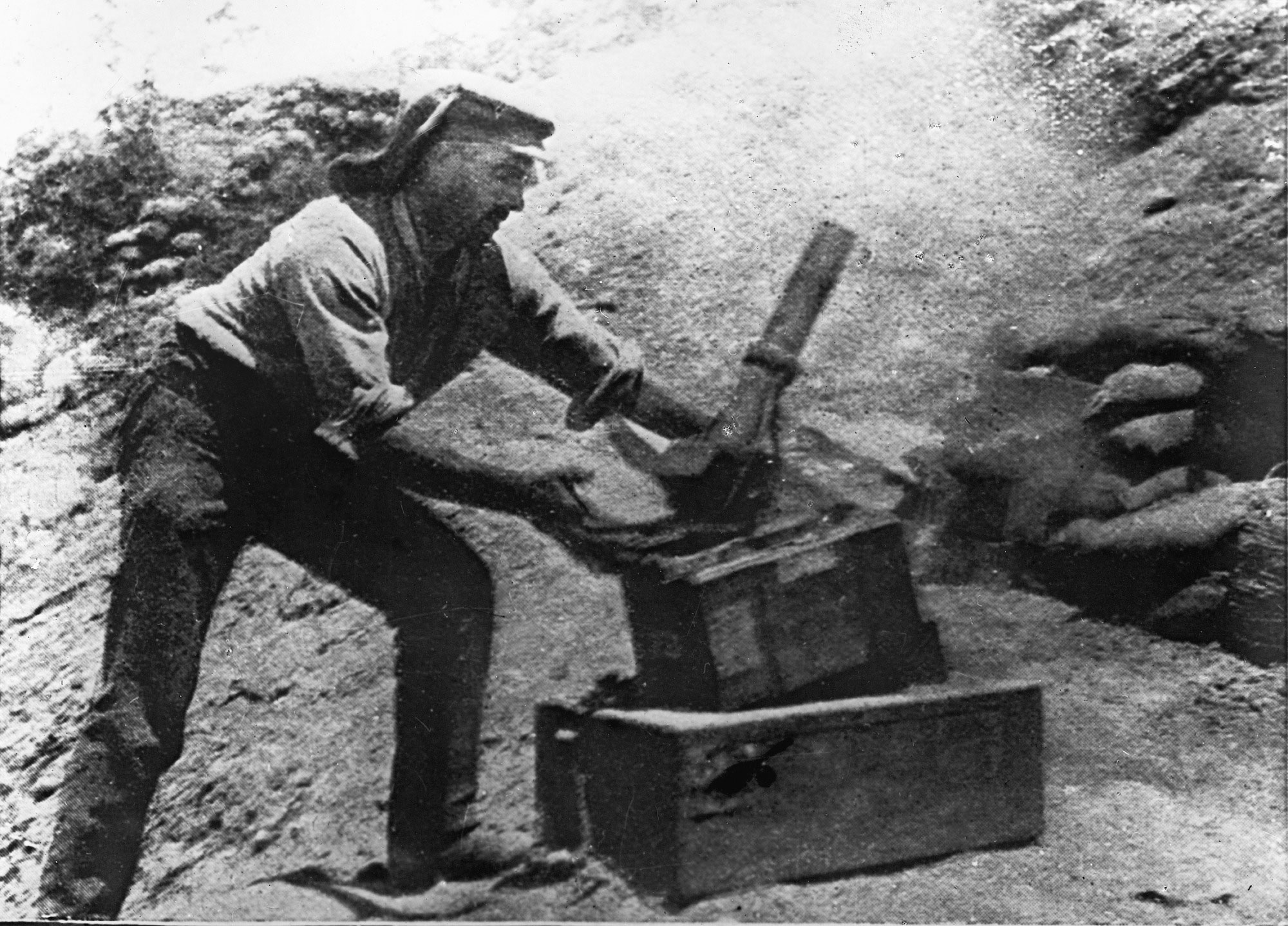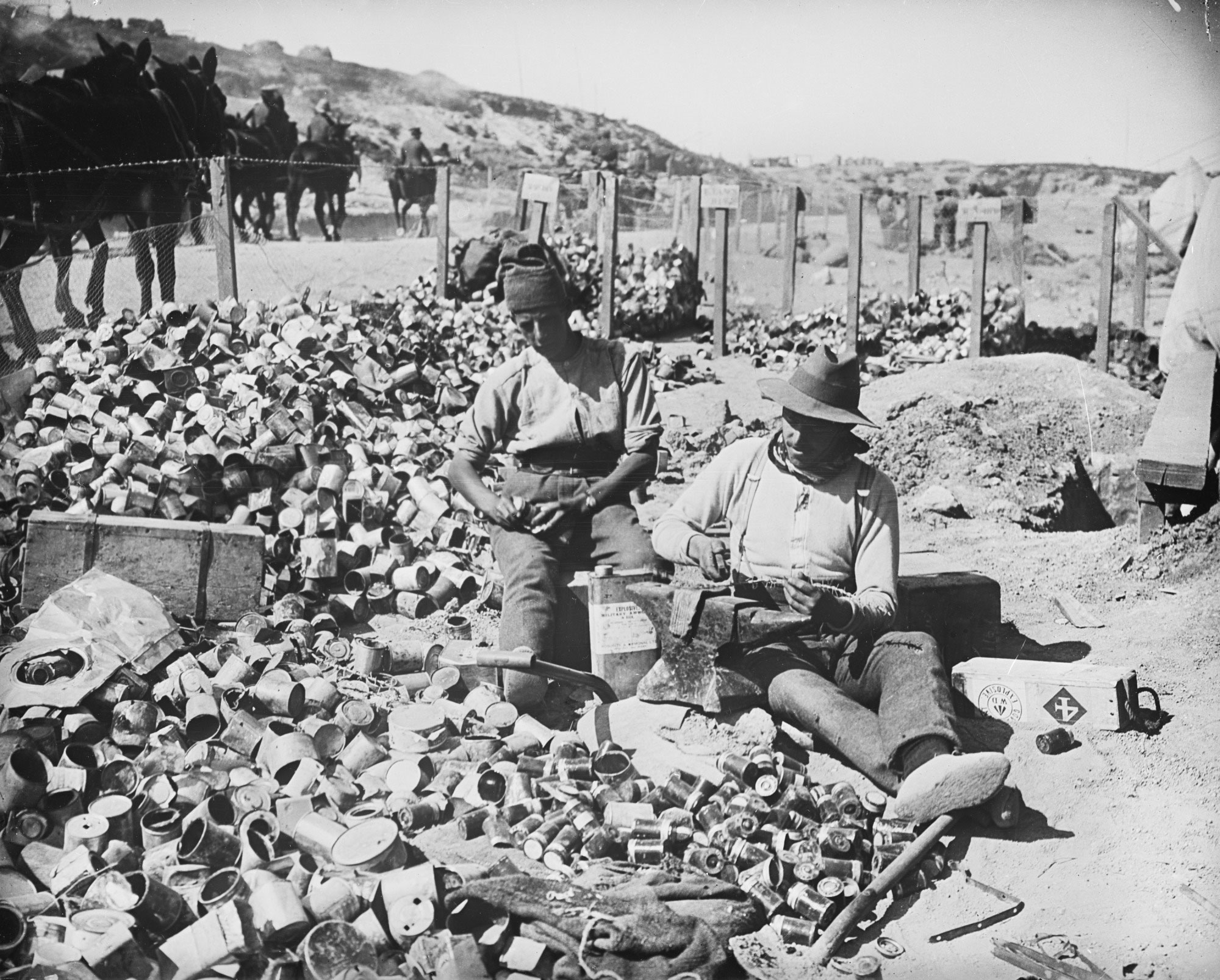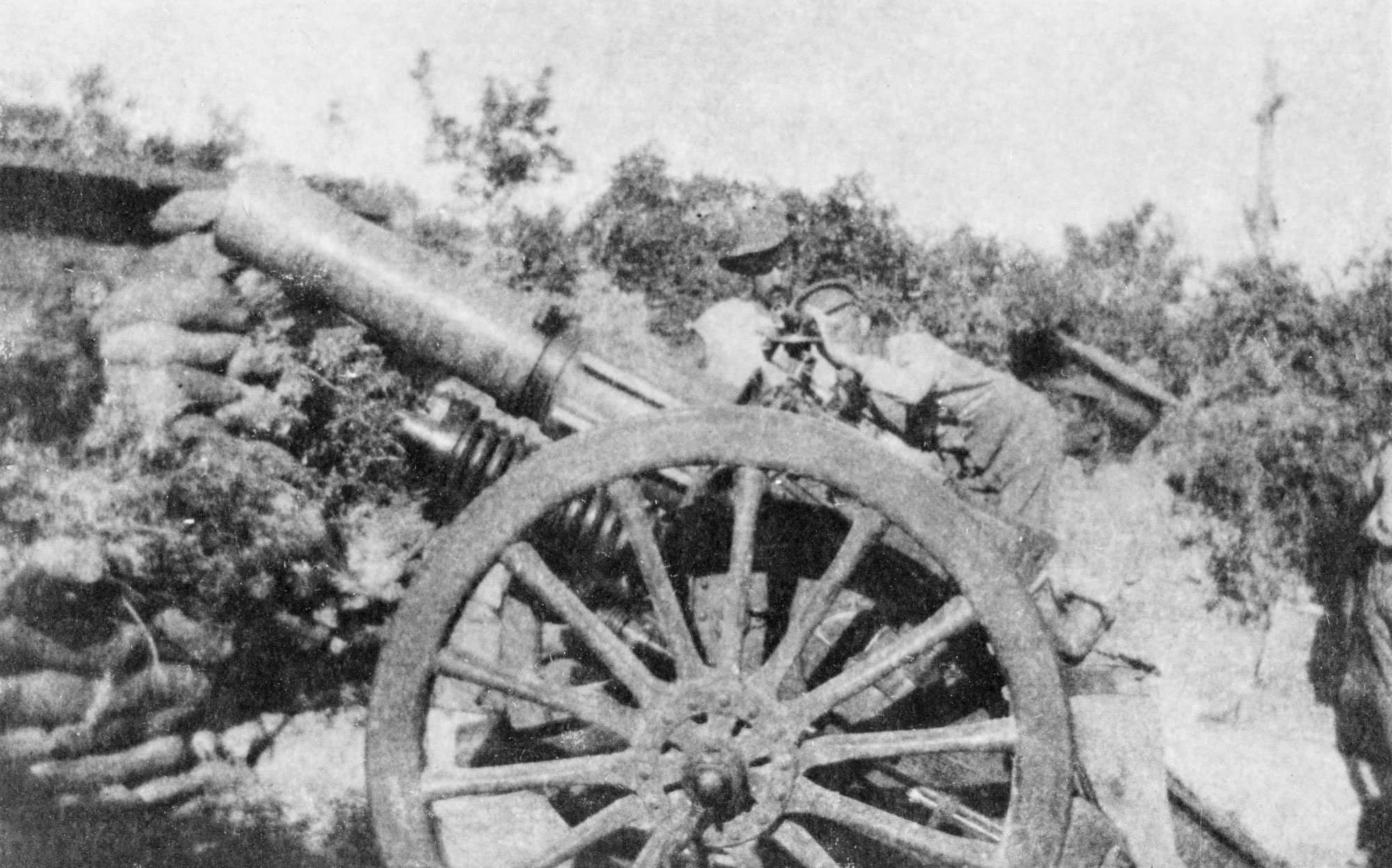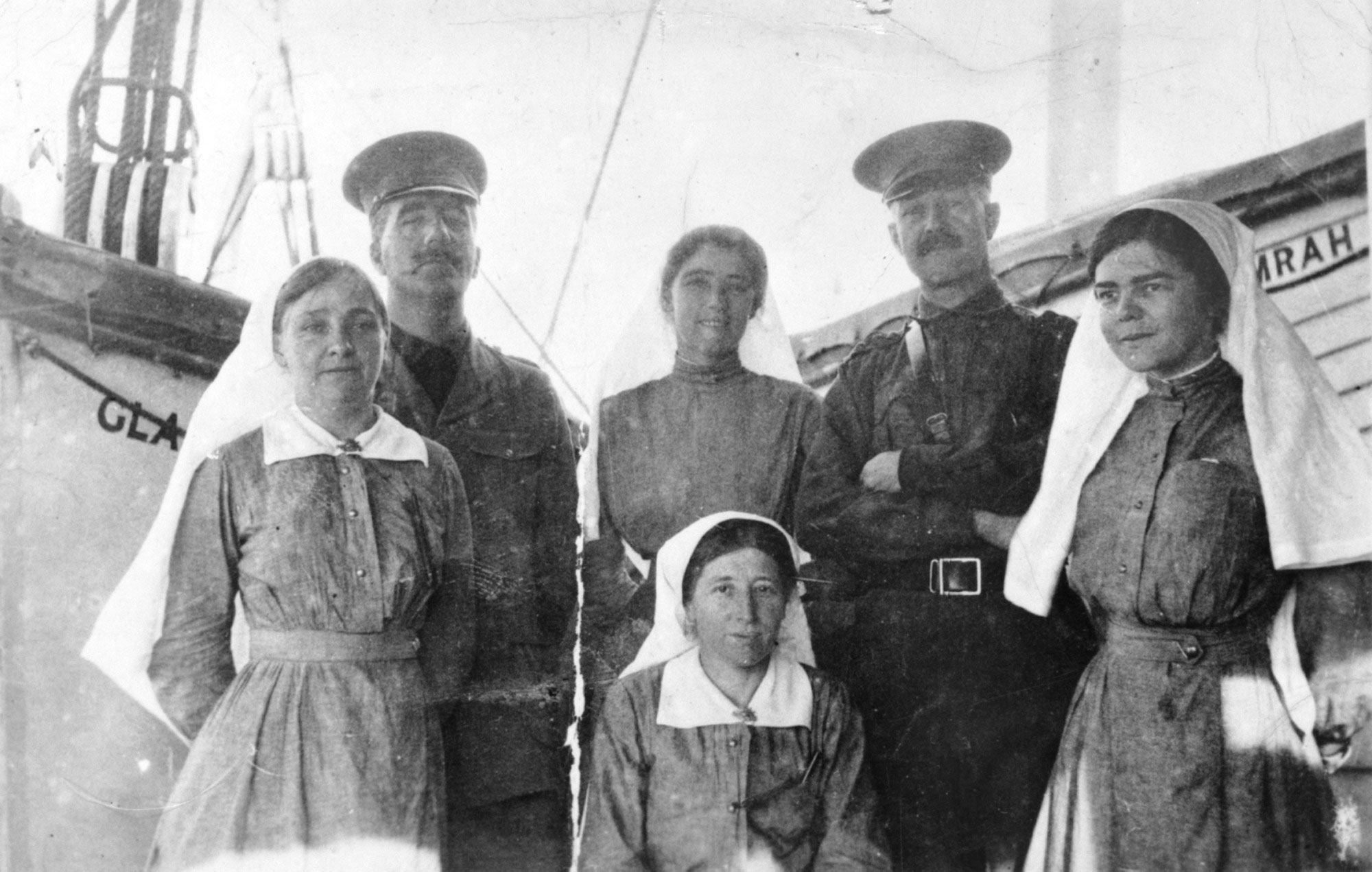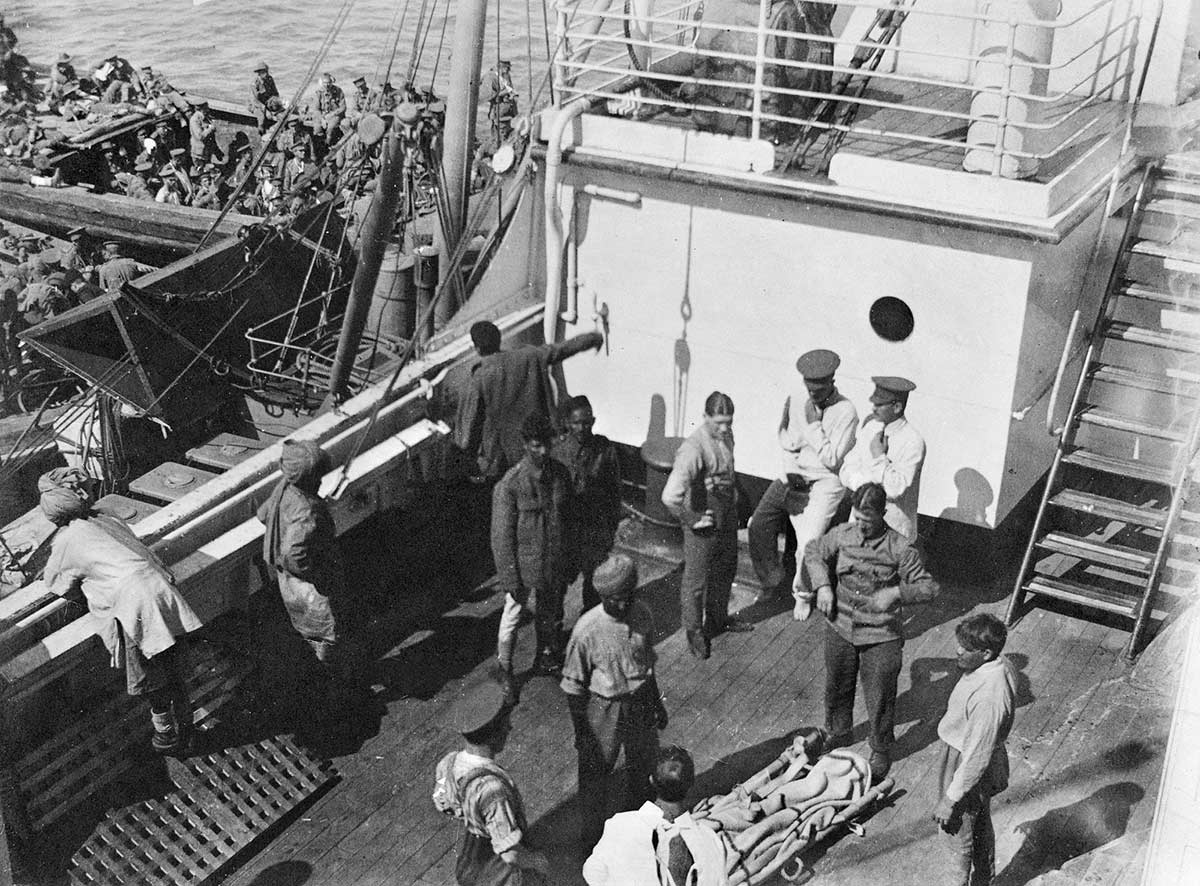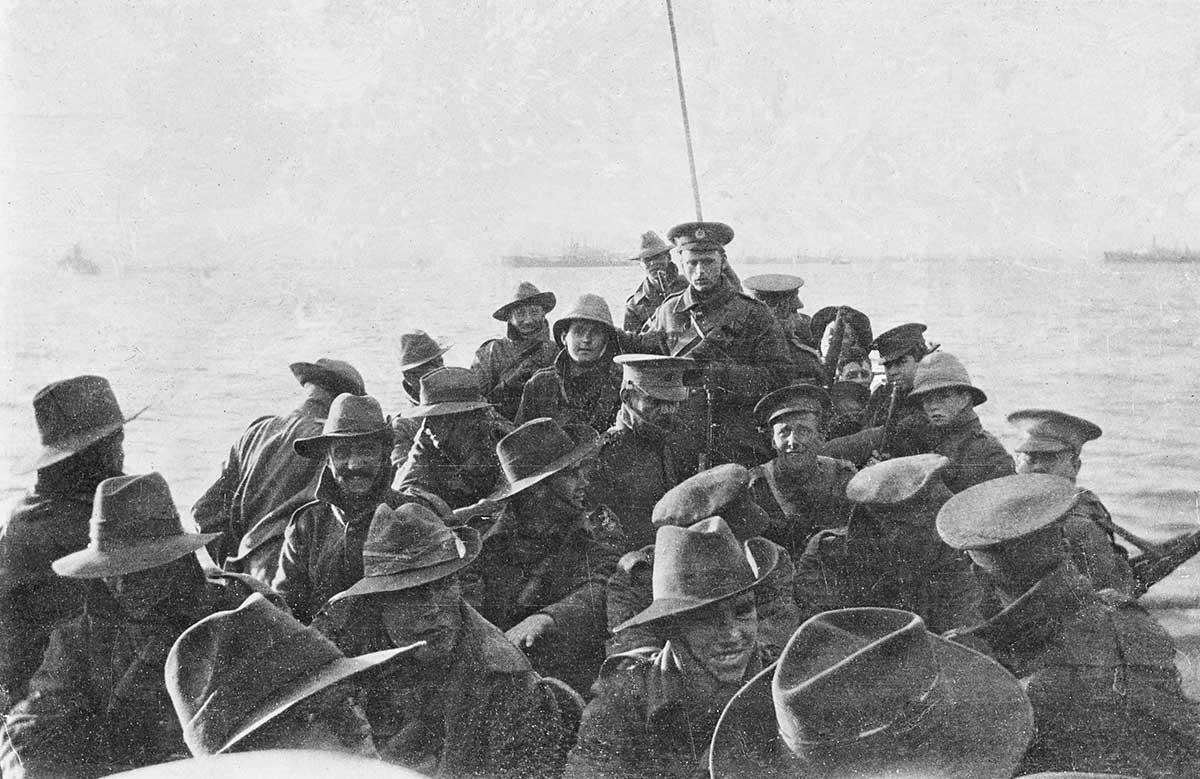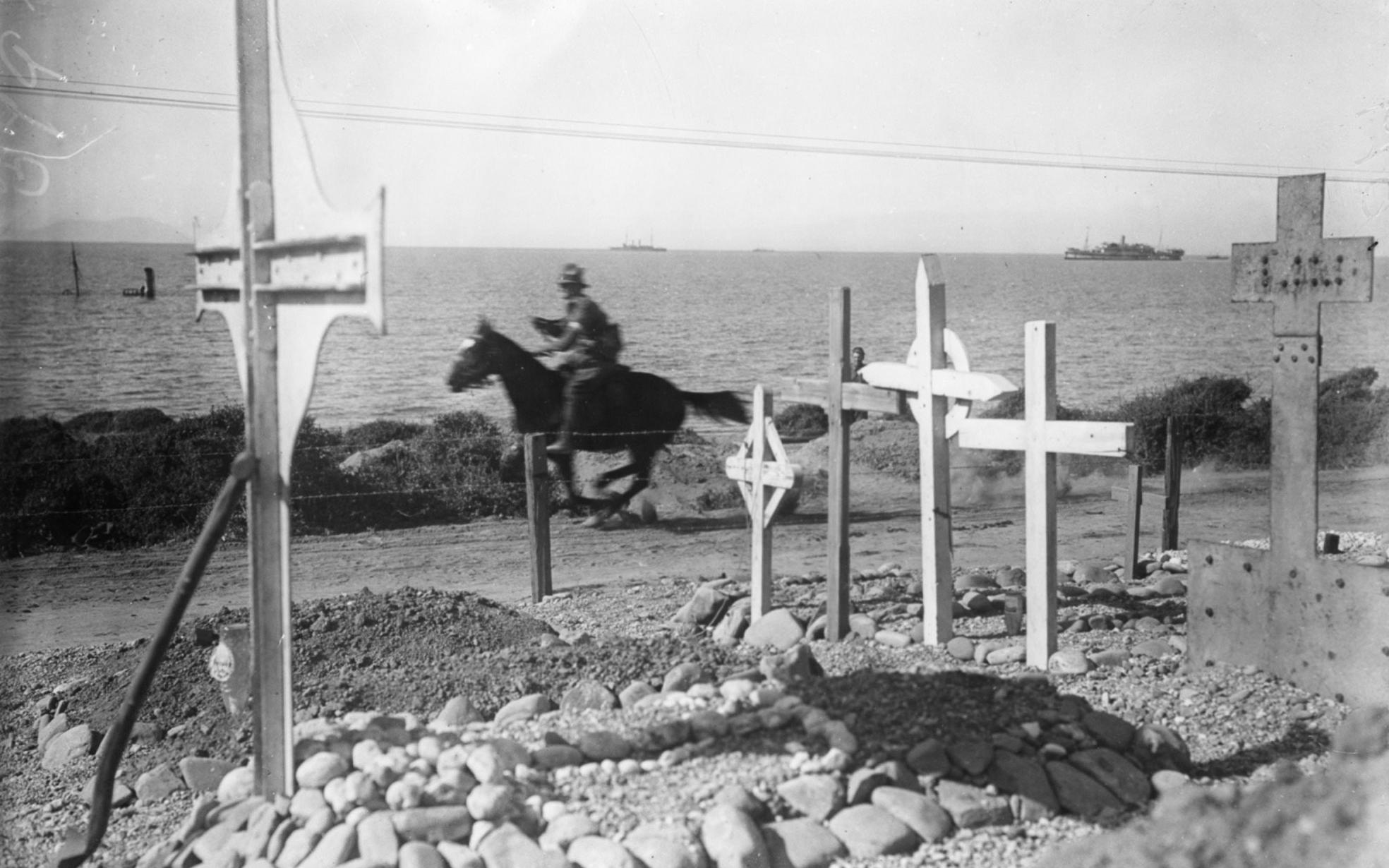Learning module:
First World War Defining Moments, 1914–1918
Investigation 2: The Australian War
2.5 What was the ANZAC soldiers’ experience of fighting at Gallipoli?
| WARNING: This page contains some difficult and potentially distressing content |
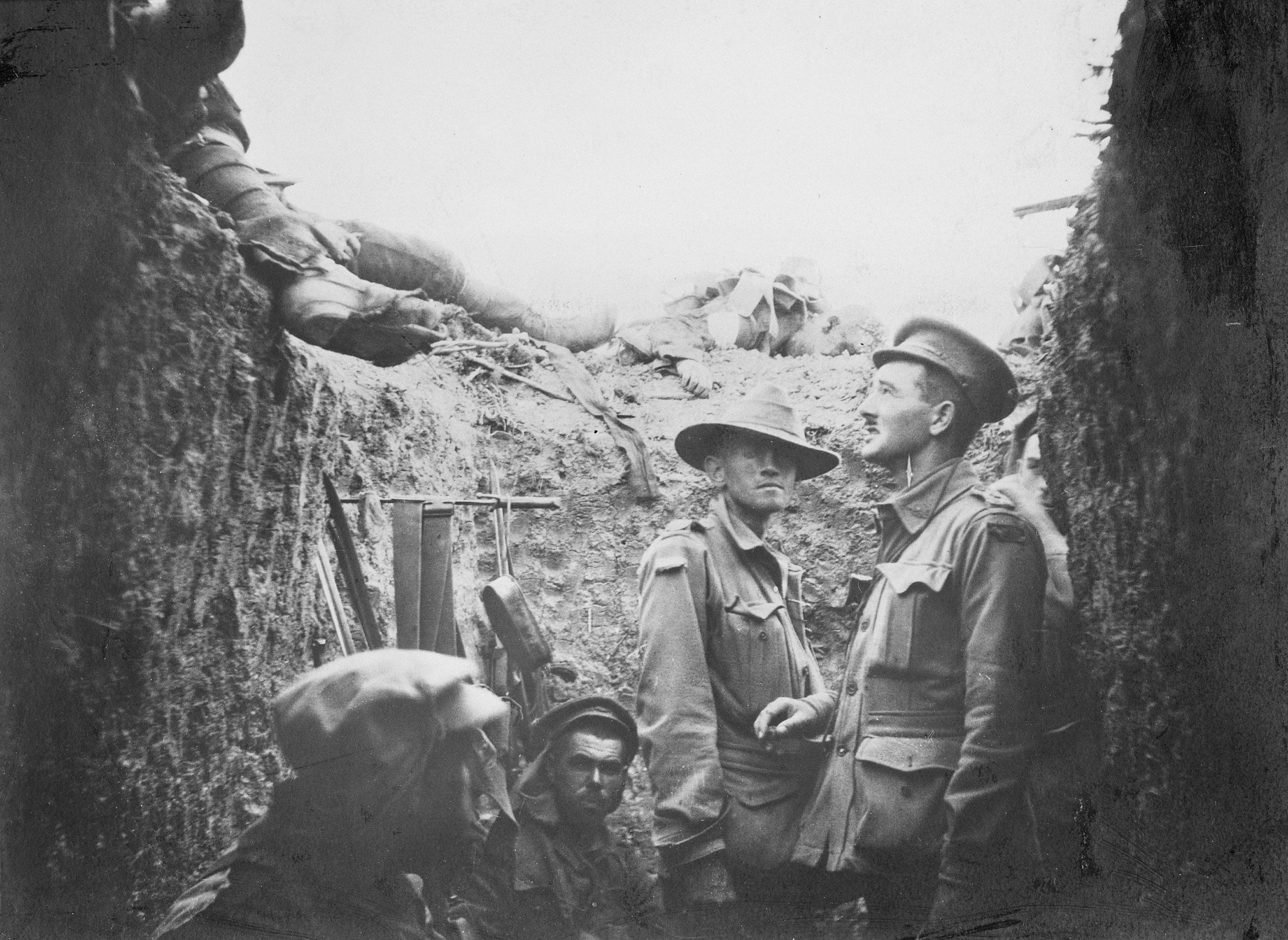
Australian Troops were involved in the Gallipoli campaign from 25 April 1915 until the majority of troops were evacuated in December 1915. You will have read information about this campaign in the Defining Moment in Australian history: 1915 Australian troops land at Gallipoli. But to understand the nature of the experience for the people involved we will need to look at information from people at the time.
Look at the following evidence to help you develop more detailed knowledge and understanding of Gallipoli, and what it was like for those who experienced it. The evidence has been divided up into 9 themes. Explore the evidence for each theme and answer the questions that follow. You might look at all the evidence, or divide it among your class and report back on what you have discovered.
1. Supplies
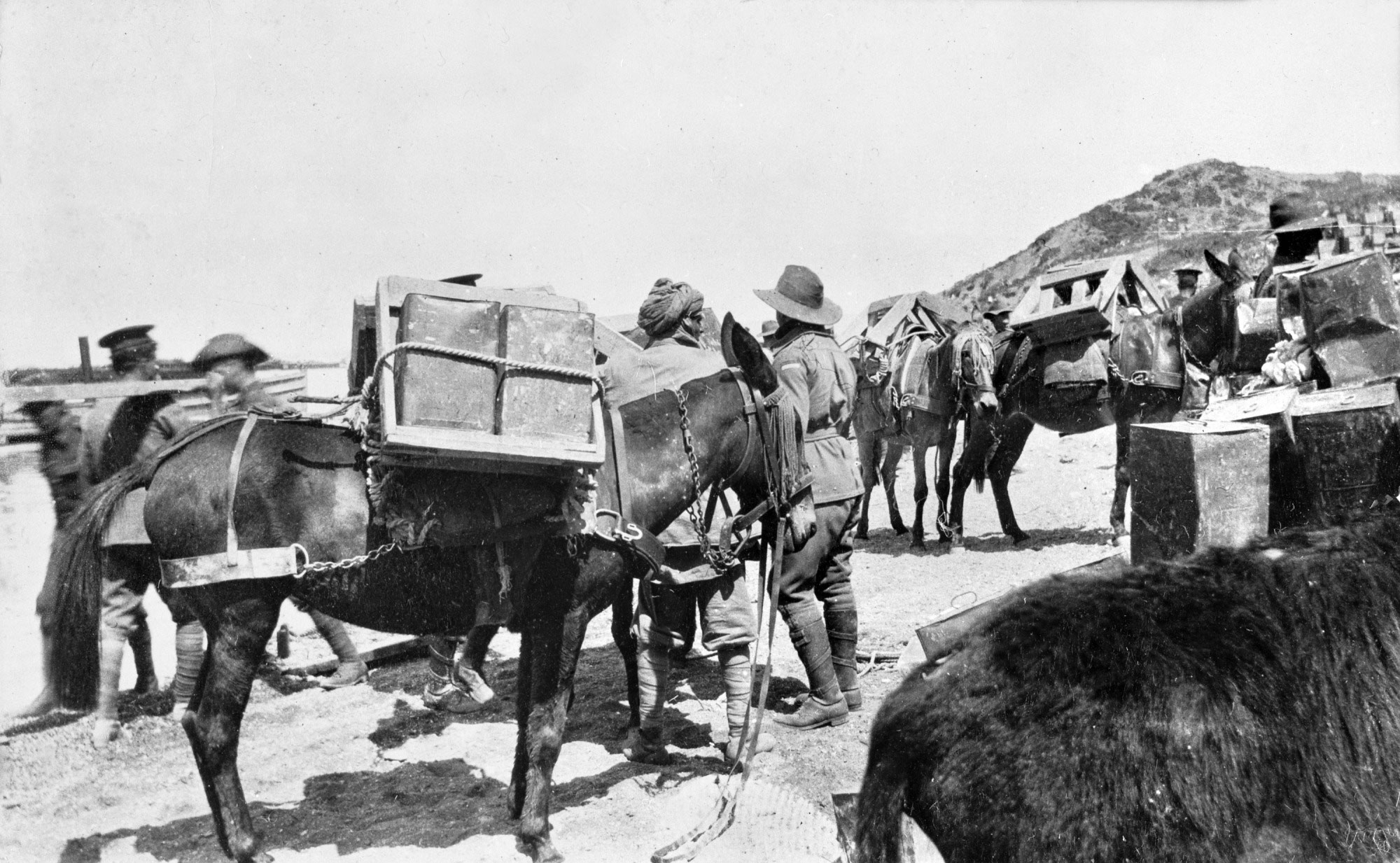
|
CEW Bean, war correspondent and official war historian
You must not imagine that life in one of the modern battles consists of continuous bomb fighting, bayoneting and bombarding all the time. [It is] … the digging of mile upon mile of endless sap (trench) of sunken road, through which troops and mules can pass safely ... The carrying of biscuit boxes and building timbers for hours daily, the waiting in weary queues, of thirty half-dry wells, for the privilege of carrying endless water cans for half a mile uphill ... the sweeping and disinfecting of trenches in the never ending fight against flies — this is the soldiers life for nine days out of ten in a modern battle. War consists of a long series of what seems at time to be endless delays, interspersed by short bursts of frantic activity.
Richard Reid, Gallipoli 1915, ABC Books, Sydney, 2001, p. 67 |
|
Pte A Barwick
I don’t know what we would have done without the mules at Anzac. I reckon we would have starved you should have seen some of the tracks they had to climb and talk about slippery, every bit of food, ammunition, clothing and nearly all our water had to be carried by the mule teams up to the trenches it was a task I can tell you and it had practically all to be done at night time for the Turks could see them in daylight. The Indians were responsible for all this work and deserve a heap of praise, there were a good few of them chaps killed at Anzac.
Richard Reid, Gallipoli 1915, ABC Books, Sydney, 2001, p. 103 |
a) What supplies were available to the soldiers?
b) How were they transported?
2. Food
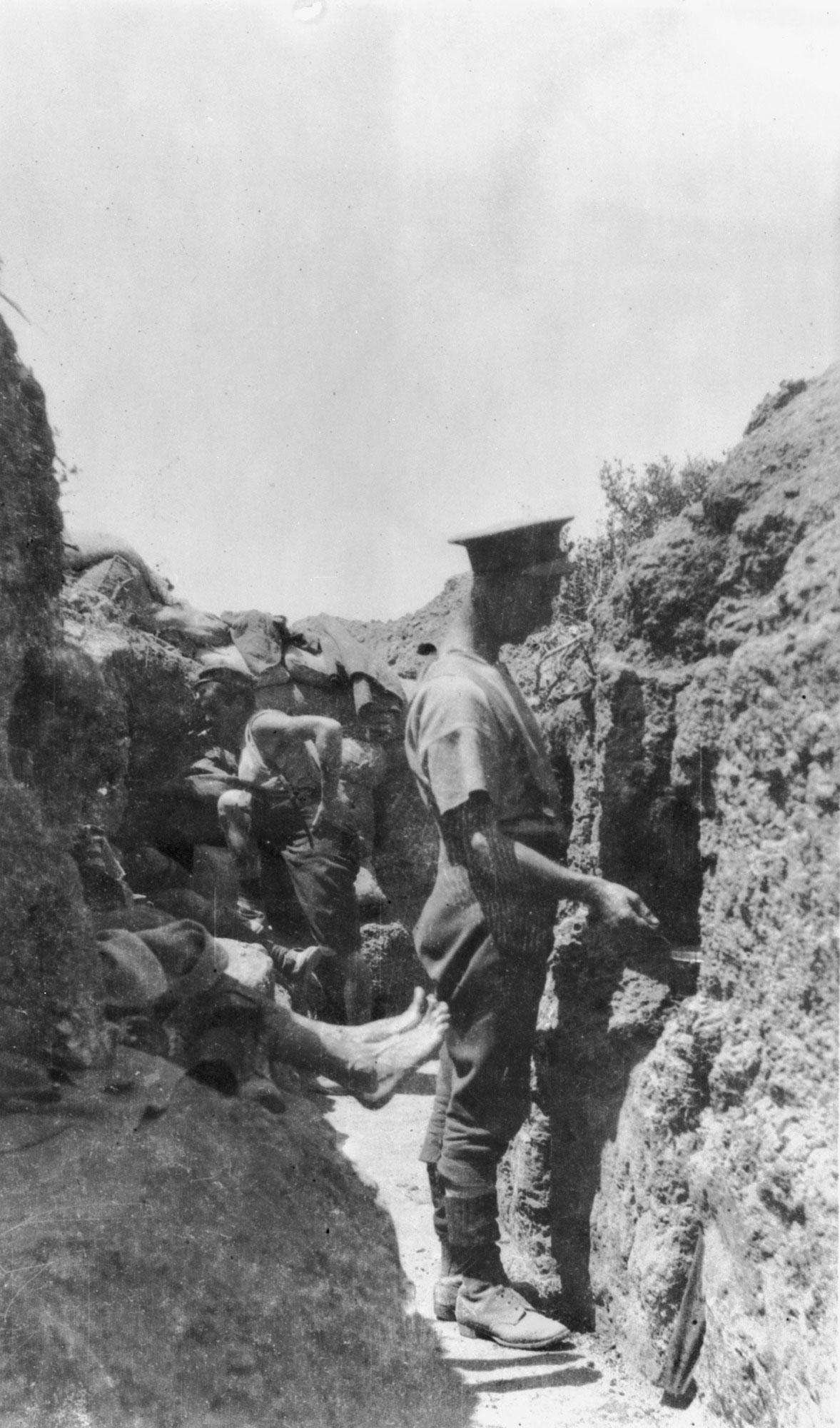
|
Trooper IL Idriess
[I]mmediately I opened … [my tin of jam] the flies rushed [it] … all fighting amongst themselves. I wrapped my overcoat over the tin and gouged out the flies, then spread the biscuit, then held my hand over it and drew the biscuit out of the coat. But a lot of flies flew into my mouth and beat about inside … I nearly howled with rage … Of all the bastards of places this is the greatest bastard in the world.
Bill Gammage, The Broken Years, Penguin, 2010, p. 88 |
a) What food was available to the soldiers?
b) What was it like?
3. Climate and weather
|
Sister A Donnell
In that terrible weather, with wind travelling a hundred miles an hour, and rain and sleet, all seems so pitifully hopeless ... Thousands have been taken to Alexandria (Egypt), hundreds, the boys say, were drowned because their feet were so paralysed they could not crawl away to safety in time. They endured agonies. Sentries were found dead at their posts, frozen and still clutching their rifles ... their fingers were too frozen to pull the trigger. And some we have in hospital are losing both feet, some both hands. It’s all too sad for words, hopelessly sad.
Richard Reid, Gallipoli 1915, ABC Books, Sydney, 2001, p. 67 |
a) What was the climate like?
b) How did it affect the soldiers?
4. Shelter
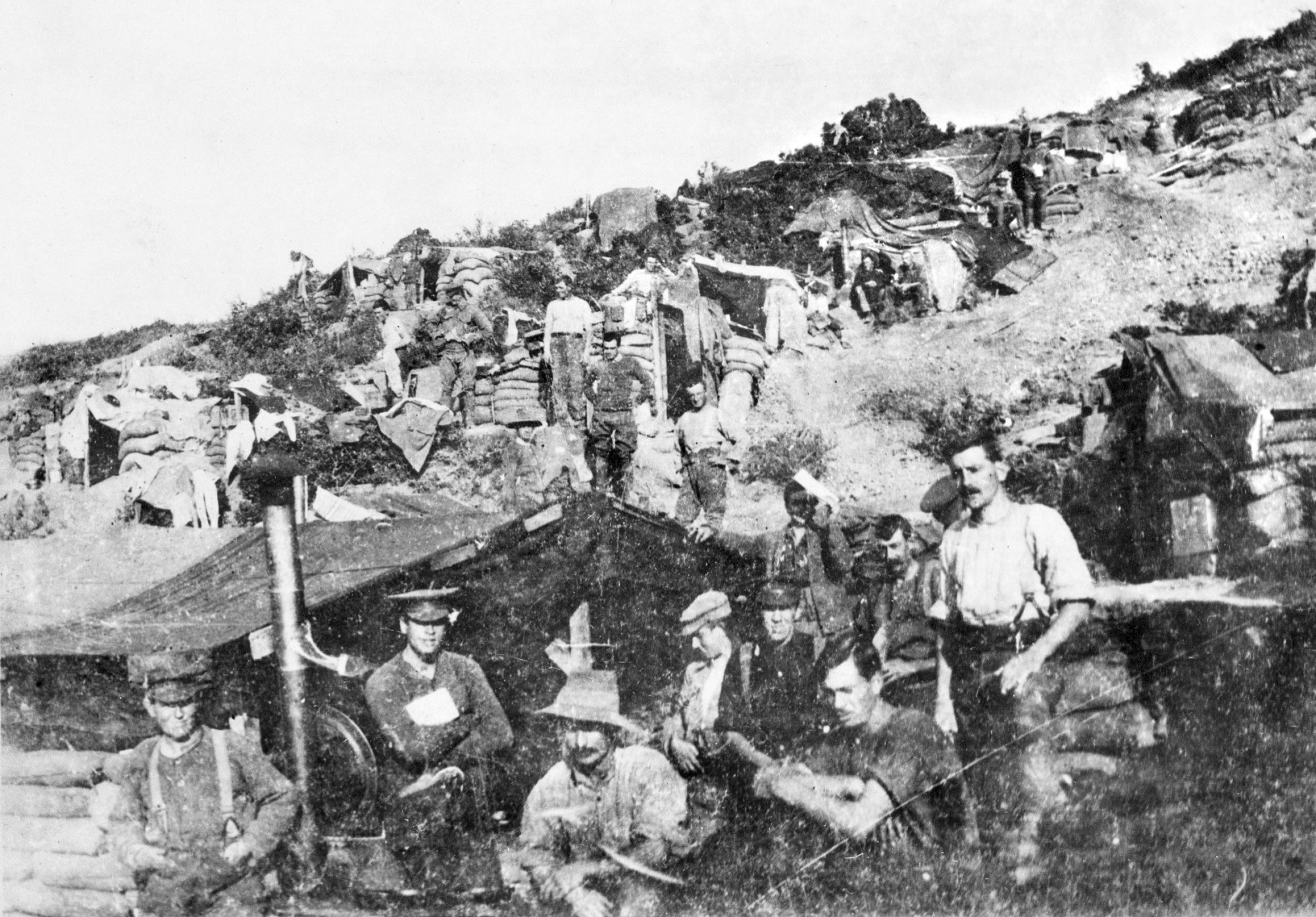
|
Trooper IL Idriess
We are in “reliefs” now, “resting”, about fifty yards back of the firing-trench. For a couple of hours, to rest our nerves, they say. There forty-eight of us in this particular spot, just an eighteen-inch-wide trench with iron overhead supports sandbagged as protection against bombs. We are supposed to be “sleeping”, preparatory to our next watch. Sleeping! Hell and tommy! Maggots are crawling down the trench; it stinks like an unburied graveyard; it is dark; the air is stagnant; some of the new hands are violently sick from watching us trying to eat. We are so crowded that I can hardly write in the diary even. My mates look like shadow men crouching expectantly in hell. Bombs are crashing outside, and — the night has come!
Ion Idriess, The Desert Column, Angus & Robertson, Sydney, 1982, p. 42 |
a) What shelter was there for the soldiers on Gallipoli?
b) How effective was it?
5. Health and hygiene
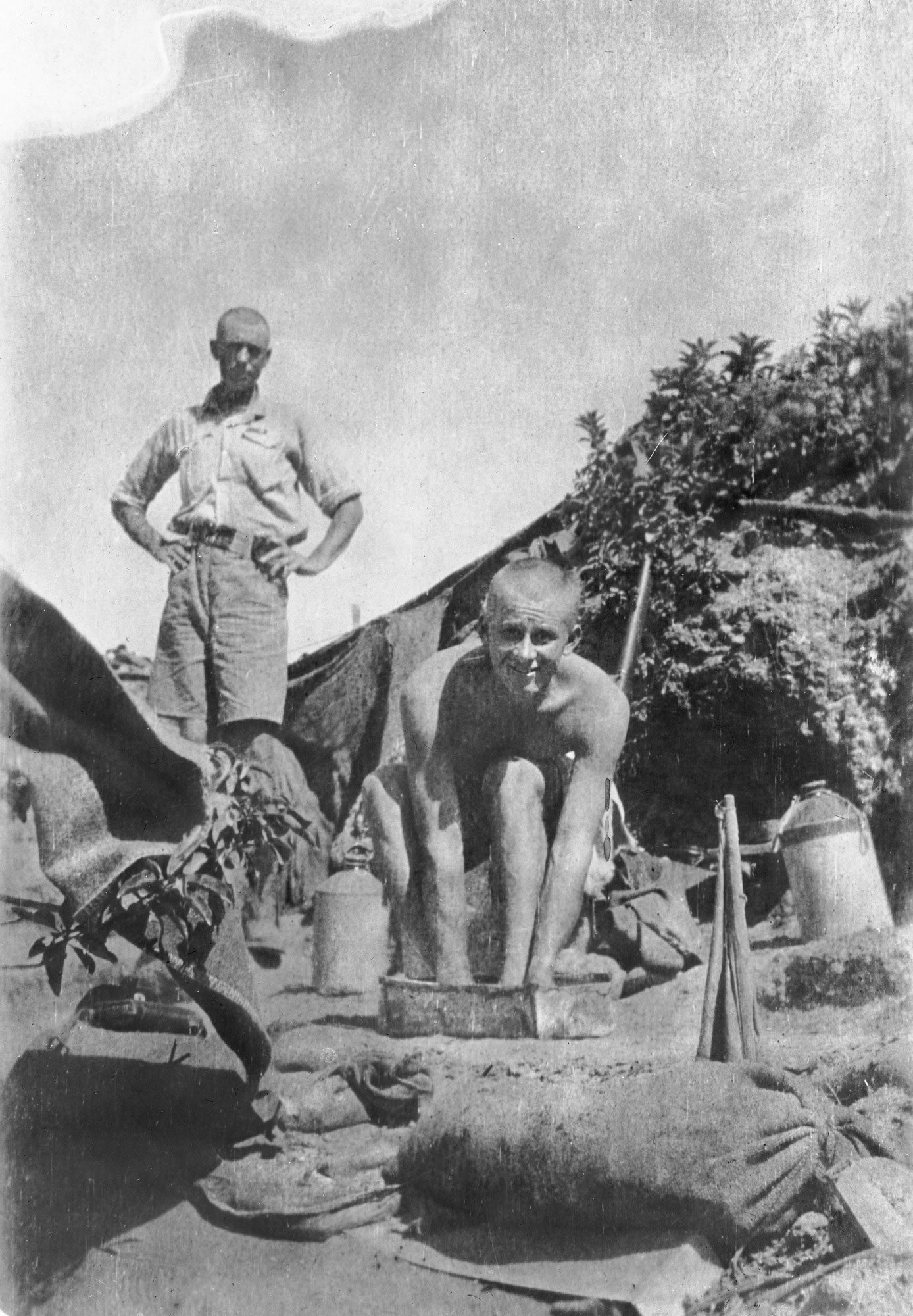
|
Capt. F Coen
I have not had a wash now for 4 weeks, not had my clothes off. I accomplish my toilet with the corner of a towel steeped in a 2 ounce tobacco tin. Water for washing purposes is out of the question.
Bill Gammage, The Broken Years, Penguin, 2010, p. 88 |
|
Lt FH Semple
One of the greatest difficulties here is the shortage of water ... I had ... the first (shave) for a week and my face was coated with the dust and grime I had got through all the recent fighting and trench digging. After I had finished the water in my mess tin ... (was) muddy ... and I washed my face in that and ... (then) had my tea out of the same tin.
Bill Gammage, The Broken Years, Penguin, 2010, p. 89 |
a) Were the conditions hygienic?
b) How would this have affected the soldiers’ health?
6. Weapons
|
CEW Bean, war correspondent and official war historian
At one moment several bombs burst simultaneously in Tubb’s recess. Four men were killed or wounded; a fifth was blown down and his rifle shattered. Tubb, bleeding from bomb-wounds in arm and scalp, continued to fight, supported in the end only by a Ballarat recruit, Corporal Dunstan, and a personal friend of his own, Corporal Burton of Euroa. At this stage there occurred at the barricade a violent explosion, which threw back the defenders and tumbled down the sandbags.
The Story of Anzac, vol. 2, Angus and Robertson, Sydney, 1924, pp. 560-561 |
a) What weapons were available on Gallipoli?
b) What was their impact?
7. Fighting
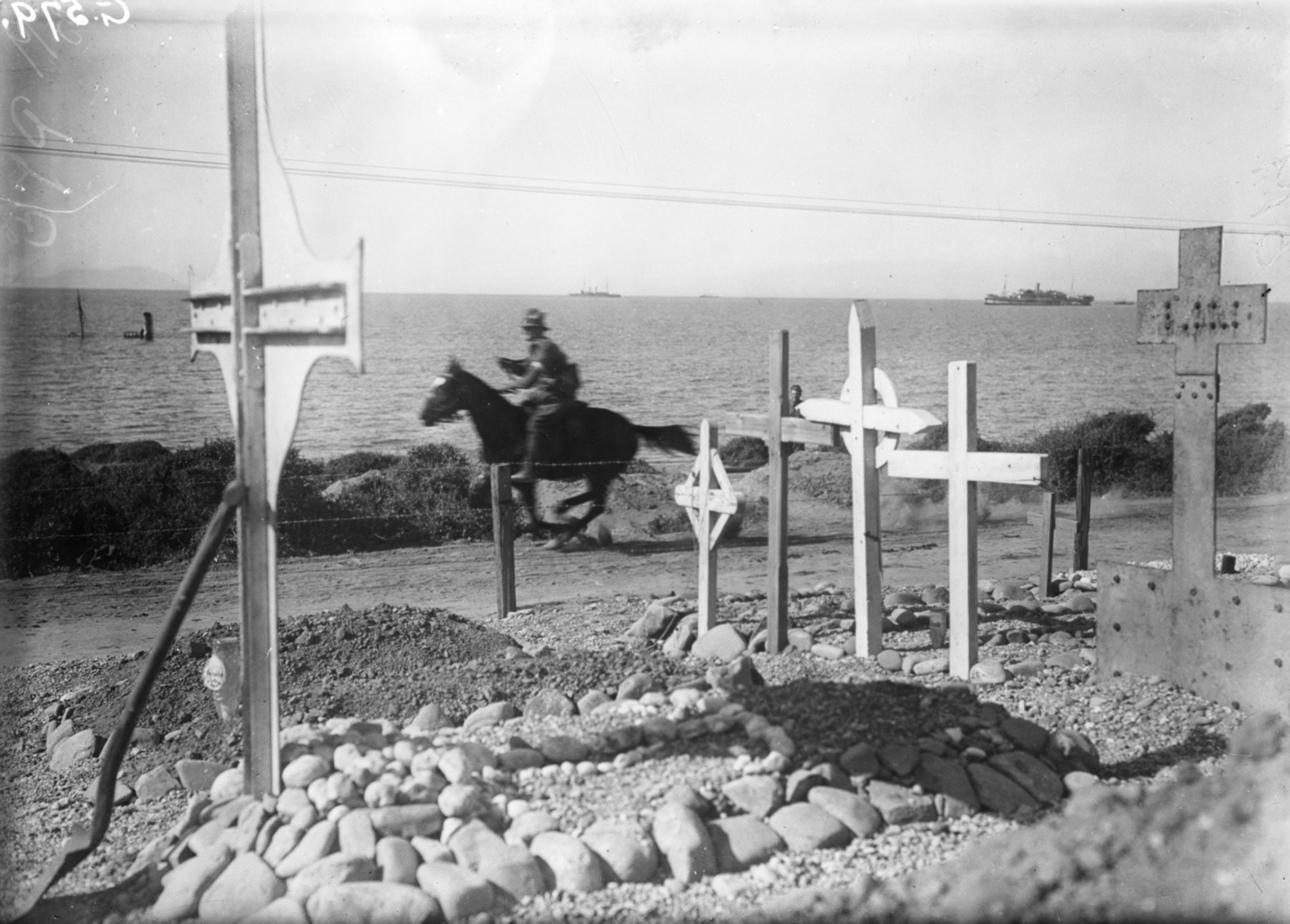
|
L/Cpl W Francis
… up the hill … we swarm … the lust to kill is on us, we see red. Into one trench, out of it, and into another. Oh! The bloody gorgeousness of feeling your bayonet go into soft yielding flesh — they run, we after them, no thrust one and parry, in goes the bayonet the handiest way.
Bill Gammage, The Broken Years, Penguin, 2010, p. 109 |
|
Pte FW Muir
About 60 in all ... in silence lined up along the parapet. Suddenly a whistle blast sounded & we were over the parapet & towards the enemy’s trench. We fixed bayonets as we ran tripping over our own barbed wire & other obstacles. At first not a shot was fired by the enemy but just as the first of our men reached the trench the alarm was given and a murderous fire from rifles and machines guns broke out. We found the trench very strong with a firm sandbagged parapet studded with loopholes ... (and) a strong overhead cover ... with bayonets projecting ... which we could not shift. In addition the Turks threw a number of bombs with good effect ... we were forced to retire amid a heavy fire having however put the machine gun out of action ... the whole affair occupied some 10 minutes but nearly every second man was injured the total casualties 27 wounded 5 killed.
Bill Gammage, The Broken Years, Penguin, 2010, p. 74 |
|
Pte AM Simpson
I got [a Turk] in the neck … made me feel sick and squeamish, being the first man I have ever killed … I often wake up and seem to feel my bayonet going into his neck. Ugh! It does get on a man’s nerves.
Bill Gammage, The Broken Years, Penguin, 2010, p. 117 |
a) What was the nature of the fighting on Gallipoli?
b) How did the soldiers feel about the experience?
8. Medicine
|
CEW Bean, war correspondent and official war historian
Stretcher-bearers are always exposed to … fire in the ordinary course of carrying out their … duty, as is everyone else. … Wherever there is a wounded man to be got, there the stretcher-bearers have gone.
Official despatch, Commonwealth of Australia Gazette, no. 79, 26 July 1915, p. 1635 |
|
Sister AM Cameron
By 10pm, we had taken in 400 horribly wounded men straight from the field. Some were shot further in the boats which took them to us. The gangway ran with blood … One needed all one’s common sense and courage ... They came pouring in — and oh the wild rushes stopping haemorrhage, treating shock and collapse ... The doctors were operating as hard as they could tear, only 4 of them you see, and many lives were saved … Oh dear that few hours. I had such scares. Some of the men as soon as they dropped asleep woke screaming through shock … They were so dead beat we wrapped them in blankets in their filthy clothes poor fellows and let them rest. Faces shot away, arms, legs, lungs, shot everywhere ...
Harvey Broadbent, Gallipoli The Fatal Shore, Penguin, Melbourne, 2005, pp. 177–178 |
a) What was the medical system like for the wounded and ill?
b) What was life like for medical staff?
9. Mental health
|
Pte ECN Devlin
They are lucky who get away from here wounded … It is quite common for men to go mad here. The strain on the nerves is so severe.
Bill Gammage, The Broken Years, Penguin, 2010, p. 87 |
|
2/Lt CDD St Pinnock
You can’t imagine what it was like. Really too awful to write about. All your pals that had been with you for months blown and shot out of all recognition. There was no chance whatsoever of us gaining our point, but the roll call after was the saddest, just fancy only 47 answered their names out of close on 550 men. When I heard what the result was I simply cried like a child.
Bill Gammage, The Broken Years, Penguin, 2010, p. 87 |
|
Lt HE Moody
The Turks have beaten us ... Tonight’s ... the last night at Anzac ... it hurts to have to leave this place. I ... was undoubtedly sick of it and needed a rest, but … to absolutely chuck the whole thing cuts right in. And I’m damned if they can say the Australians failed to do what was asked of them. They did everything ... more than they were asked.
Bill Gammage, The Broken Years, Penguin, 2010, p. 122 |
|
Sgt AA Barwick
... had a terrible fight with myself … one part of me wanted to run away & leave the rest of my mates to face it, & the other part said no, we would stop & see it out at any cost.
Bill Gammage, The Broken Years, Penguin, 2010, p. 112 |
a) How did the experiences of Gallipoli affect soldiers’ mental health?
Conclusion
10. Overall, what were conditions like in the trenches at Gallipoli? How did it affect the soldiers who fought there?
Finding out more
11. Do some research to find out which other nations were fighting at Gallipoli. How might contact with them have affected the Anzac soliders’ experience?






